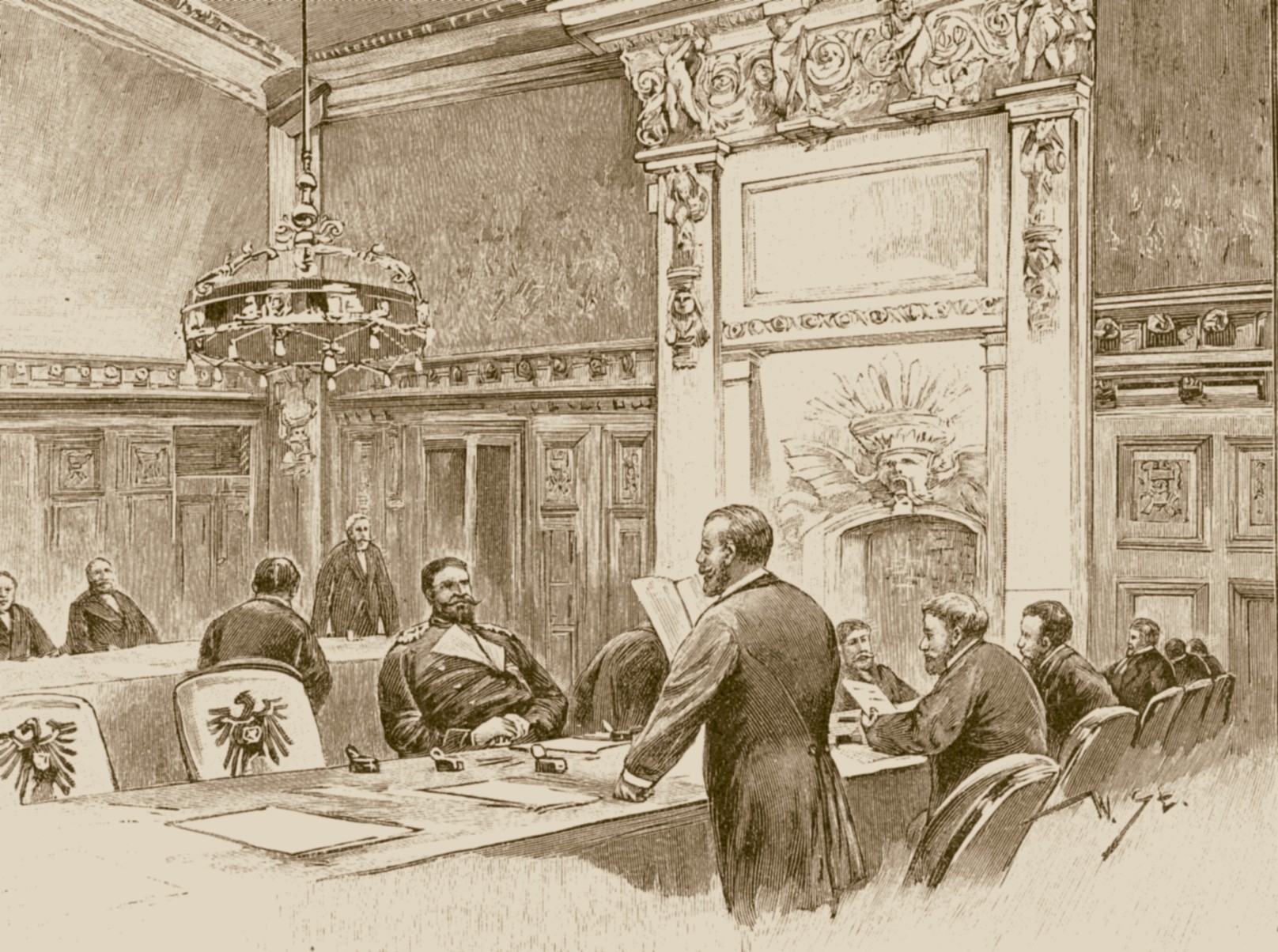Bundesrat (German Empire) on:
[Wikipedia]
[Google]
[Amazon]

 The ''Bundesrat'' ("Federal Council") of the
The ''Bundesrat'' ("Federal Council") of the

 The ''Bundesrat'' ("Federal Council") of the
The ''Bundesrat'' ("Federal Council") of the North German Confederation
The North German Confederation (german: Norddeutscher Bund) was initially a German military alliance established in August 1866 under the leadership of the Kingdom of Prussia, which was transformed in the subsequent year into a confederated st ...
and the German Empire
The German Empire (),Herbert Tuttle wrote in September 1881 that the term "Reich" does not literally connote an empire as has been commonly assumed by English-speaking people. The term literally denotes an empire – particularly a hereditary ...
was the highest legislative body in Germany. It existed from 1867 to 1918. Until the 1902 spelling reform, its name was spelled ''Bundesrath''.
The ''Bundesrat'' comprised representatives of the 25 member state
A member state is a state that is a member of an international organization or of a federation or confederation.
Since the World Trade Organization (WTO) and the International Monetary Fund (IMF) include some members that are not sovereign state ...
s (''Bundesstaaten''). The numbers of votes of each state were specified in the imperial constitution.
The representatives of the states voted as directed by their governments. The chairmanship of the Bundesrat was held by the Imperial Chancellor. All laws passed in Germany had to have the support of the Bundesrat. Also, certain official procedures carried out by the Kaiser
''Kaiser'' is the German word for "emperor" (female Kaiserin). In general, the German title in principle applies to rulers anywhere in the world above the rank of king (''König''). In English, the (untranslated) word ''Kaiser'' is mainly ap ...
had to be voted on, for example, the dissolution of the Reichstag and declarations of war. The Bundesrat ruled on Reichsexekution
In German history, a ''Reichsexekution'' (sometimes "Reich execution" in English) was an imperial or federal intervention against a member state, using military force if necessary. The instrument of the ''Reichsexekution'' was constitutionally a ...
s; besides, it had numerous administrative functions and the power to adjudicate disputes between the states and, in certain cases, to resolve constitutional disputes within a state. An Imperial Supreme Court, unlike that of the Constitution of St. Paul's Church, was not envisaged in the Imperial Constitution as an independent body, rather jurisdiction lay with the German Emperor and King of Prussia
The monarchs of Prussia were members of the House of Hohenzollern who were the hereditary rulers of the former German state of Prussia from its founding in 1525 as the Duchy of Prussia. The Duchy had evolved out of the Teutonic Order, a Roman C ...
.
The Bundesrat was, in practice, dominated by Prussia. It had a plurality of 17 votes in the chamber; no other state had more than six votes. It could control the proceedings by forming alliances with the other states. Additionally, Bismarck served as both prime minister and foreign minister of Prussia for almost his entire tenure. In the latter capacity, he had the right to instruct the Prussian deputies to the Bundesrat.
Although constitutionally the highest organ of state power, the Bundesrat was pushed into the background by the Kaiser and the Reich Chancellor due to the simple fact that the Prussian minister-president
A minister-president or minister president is the head of government in a number of European countries or subnational governments with a parliamentary or semi-presidential system of government where they preside over the council of ministers. I ...
often held the office of Chancellor simultaneously and was thus chairman of the Bundesrat.
For changes to the constitution, a proposal had to go through the normal legislative process. That said, it only needed 14 votes in the Bundesrat to vote down such a proposal. That meant that Prussia, with its 17 votes, effectively had a right of veto
A veto is a legal power to unilaterally stop an official action. In the most typical case, a president or monarch vetoes a bill to stop it from becoming law. In many countries, veto powers are established in the country's constitution. Veto ...
over constitutional changes.
Distribution of votes
External links
{{Authority control Politics of the German Empire 1871 establishments in Germany 1918 disestablishments in Germany